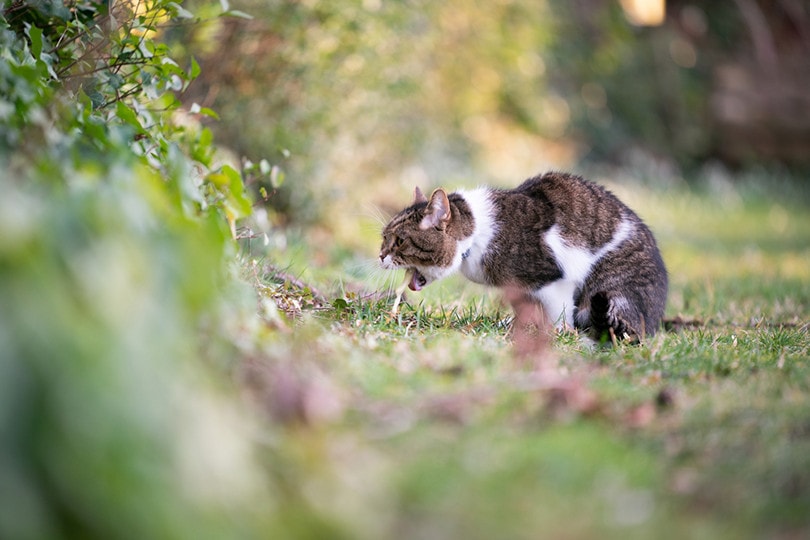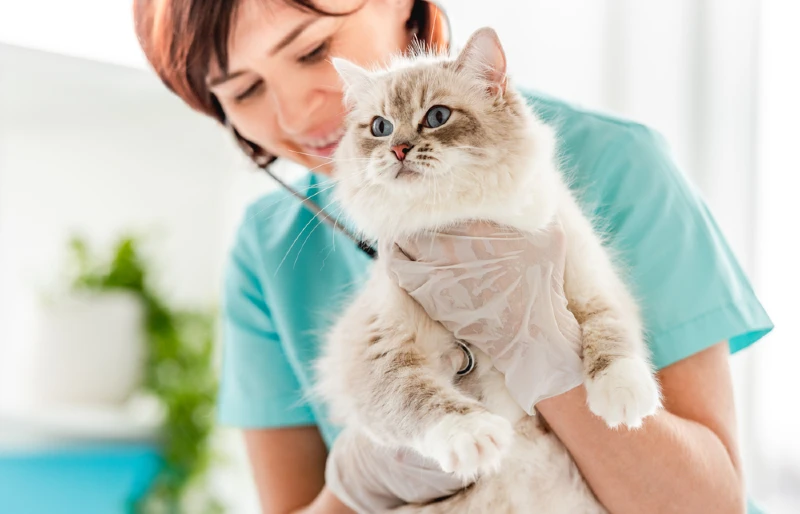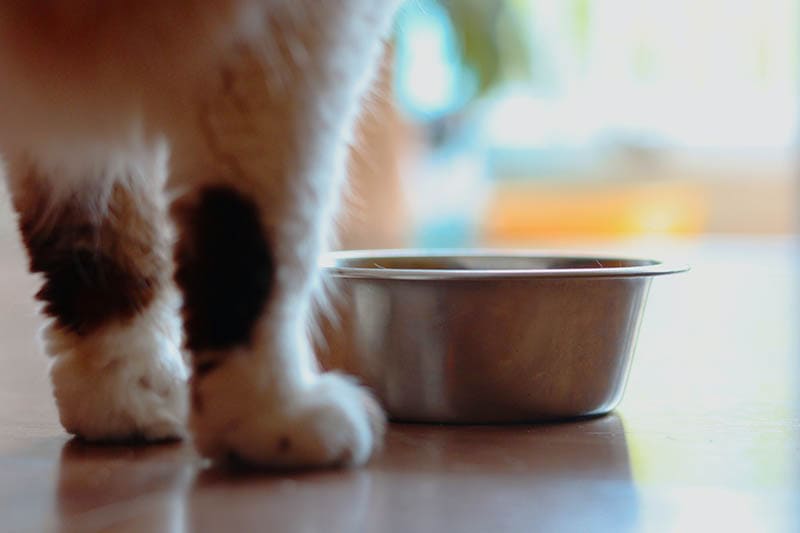
It is always concerning when your cat shows signs of an illness, whether it is looking lethargic, coughing, or has diarrhea. Another concerning sign is vomiting yellow liquid. Why would a cat throw up yellow liquid? There are a few different reasons. Here is what you need to know.
The 6 Possible Causes of a Cat Throwing Up Yellow Liquid
1. Gastritis
Gastritis is when the stomach lining gets inflamed. Both acute and chronic instances of gastritis can occur in cats. When a cat develops gastritis, common signs include a loss of appetite and vomiting. The vomiting is likely to be tainted by a yellow liquid known as bile. Bile is a digestive fluid produced by the liver. You can see the bile color because the cat is not eating much food, if anything at all. The causes of gastritis vary greatly and include:
Acute gastritis typically lasts less than 24 hours, while chronic gastritis may take much longer to resolve, if ever. If your cat shows signs of gastritis for longer than 24 hours, it is important to contact your veterinarian as soon as possible to determine whether medical care is necessary.
2. Pancreatitis
The pancreas plays an important role in keeping a cat healthy throughout their life. First, it works to stabilize blood sugar levels. It also helps the intestinal tract digest all the vitamins, minerals, and fats that are consumed through the production of digestive enzymes. Inflammation of the pancreas is referred to as pancreatitis, and it can be dangerous to any cat’s health if left unchecked. Cats that are suffering from pancreatitis may vomit yellow liquid. Other signs of the disease include:
Pancreatitis can be tough to diagnose, but testing has become more efficient. Your veterinarian will likely do a few blood tests and might perform an abdominal ultrasound on your cat as part of the diagnosis process.

3. Diabetes
Diabetes mellitus is a cat disease just as much as it is a human one. As a cat develops diabetes, they may display signs of the disease in the form of vomiting yellow liquid, especially if it has been a few hours since they have eaten. There are other signs that your cat might display if they have developed diabetes, such as:
Cats with diabetes that do not get treatment can go into a coma or even succumb to the disease. Making regular veterinarian checkups a priority is the best way to catch diabetes early so it can be effectively managed with diet and insulin treatment.
Feeding your cat a species-appropriate diet that is based on animal-derived protein and very low in carbohydrates is the best way of preventing diabetes in a cat.
4. An Empty Stomach
When a cat does not eat for several hours, it may end up vomiting yellow liquid due to irritation in the stomach lining. If there is no food in the stomach, all that is left is gastric juices. A cat’s gastric juice is very acidic so it can irritate the gastric mucosa and build up. Your cat’s body might want to release it by vomiting. If your cat has not eaten due to a known circumstance, vomiting should be expected.
If your cat is not eating and you can’t figure out why, it is most likely is an underlying health condition that is causing the loss of appetite. A cat not eating needs to be checked by a vet and any other resulting symptoms, like vomiting, should be reported. The vet is trained to diagnose the cat’s issue.

5. Indigestion
Unfortunately, cats are not immune to indigestion. If they overeat or eat the wrong foods, they can get indigestion just like humans can. Vomiting yellow liquid is one sign that your cat is experiencing a bout of indigestion. Other signs include:
If your cat has eaten something that they do not normally consume or has overindulged in their regular food and shows signs of indigestion, your veterinarian may be able to prescribe a treatment or special temporary diet to help ease the problem and get your cat back to normal quickly.
6. Kidney Problems
Another reason that your cat might be vomiting yellow liquid is due to kidney disease. When kidneys stop working properly, toxins accumulate in your cat’s bloodstream causing inappetence, nausea, and vomit. Chronic kidney disease is a progressive disease that you should watch out for, especially in older cats. Here are other symptoms of kidney disease:
Sadly, most cats don’t typically show any symptoms of the disease until more than 75% of their kidney functionality has been lost. So, once you notice any signs, it’s crucial to seek the help of a veterinarian as soon as possible.

Conclusion
Now that you know the most common reasons for your cat throwing up yellow liquid, you can better figure out what the underlying problem is and address it before it becomes more serious. It is important to consult with your veterinarian any time that you have concerns about the health of your furry family member.
You Might Also Be Interested In:
- Why Did My Cat Throw Up White Foam? (10 Potential Causes)
- Why Does My Cat Throw Up Every Day? (4 Possible Reasons!)
Featured Image Credit by: Nils Jacobi, Shutterstock







